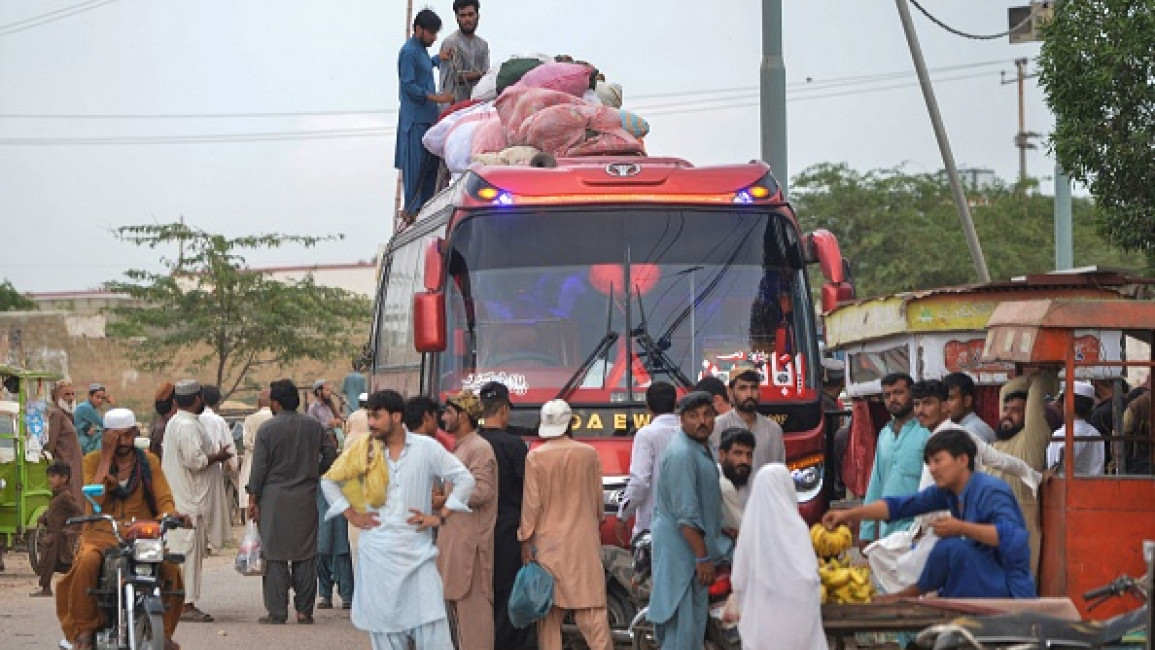Pakistan evictions of Afghan migrants 'unacceptable', says Taliban
Pakistan's plan to evict hundreds of thousands of Afghan migrants is "unacceptable", Taliban authorities said Wednesday, denying allegations by Islamabad its citizens were responsible for a string of suicide attacks there.
Around 1.3 million Afghans are registered refugees in Pakistan and 880,000 more have legal status to remain, according to the latest United Nations figures.
But caretaker Interior Minister Sarfraz Bugti said Tuesday a further 1.7 million Afghans were in Pakistan illegally, giving a November 1 deadline to return home or face deportation.
The order comes as Pakistan grapples with a rise in attacks the government blames on militants operating from Afghanistan, a charge Kabul routinely denies.
"The behaviour of Pakistan against Afghan refugees is unacceptable," Taliban government spokesman Zabihullah Mujahid wrote on social media site X.
"Afghan refugees are not involved in Pakistan's security problems. As long as they leave Pakistan voluntarily, that country should tolerate them."
Bugti claimed Afghan nationals were responsible for 14 of 24 suicide attacks in Pakistan since January.
"We deny all these claims because Afghans have migrated to other countries for their safety, their security," said Abdul Mutalib Haqqani, spokesman for the Ministry of Refugees and Repatriation.
"It's natural when someone migrates to another country for his safety, he would never want insecurity there," he told AFP.
Legions of Afghans have migrated to neighbouring Pakistan over decades of conflict during the Soviet invasion, the following civil war and the US-led occupation.
And 600,000 have arrived since the Taliban seized power in Kabul in August 2021 and imposed their austere version of Islamic law.
Taliban authorities have been trying to tempt back those who left, despite the nation suffering from a massive scaleback of aid following the collapse of the US-backed government.
Rights monitors have also reported reprisal killings and disappearances.
"Internally work is underway to ensure the capacity for Afghans coming back to the country, so that they live in their country in a peaceful atmosphere," Haqqani told AFP.


![Hundreds demonstrate against the White House Correspondents' Dinner in support of Gazan journalists. [Brooke Anderson/TNA]](/sites/default/files/styles/image_212x120/public/2024-04/5cde0bce-4652-4e28-a001-f06b9b8f8e28.jpg?h=ddb1ad0c&itok=KpFyfV2a)
